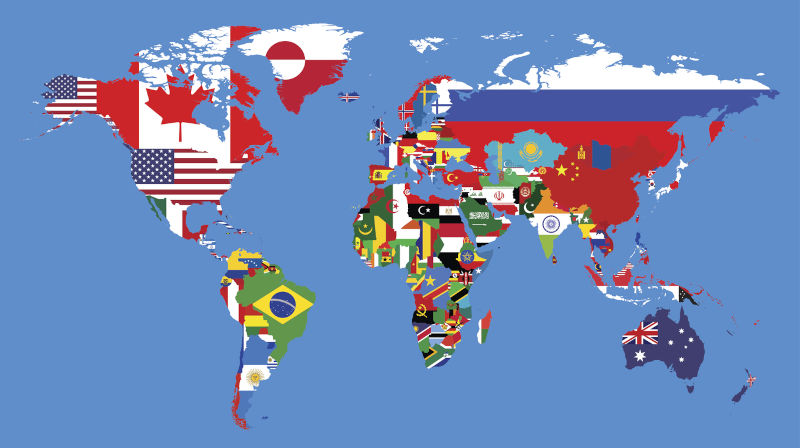The re-emergence of Donald Trump in the American political landscape has reignited discussions surrounding his “America First” policy, a hallmark of his leadership. This policy, which initially focused on reshaping America’s economic and foreign priorities, has evolved and could have deeper global implications. Trump’s tenure as president and his current campaign suggest that his approach, particularly in terms of trade, immigration, and military strategy, would be significantly more stringent in his second term.
The re-emergence of Donald Trump in the American political landscape has reignited discussions surrounding his “America First” policy, a hallmark of his leadership. This policy, which initially focused on reshaping America’s economic and foreign priorities, has evolved and could have deeper global implications. Trump’s tenure as president and his current campaign suggest that his approach, particularly in terms of trade, immigration, and military strategy, would be significantly more stringent in his second term.
When Trump took office in 2017, his “America First” policy quickly redefined the United States’ role in global affairs. It prioritized domestic economic revival, often at the expense of long-standing alliances and multilateral agreements. Trump withdrew the US from the Paris Climate Agreement, renegotiated NAFTA into the USMCA, and imposed tariffs on China and European nations. Simultaneously, his administration enacted immigration restrictions, sparking both domestic and international controversy.
Trump’s approach was largely isolationist. He sought to curb American involvement in foreign conflicts, reduce overseas military spending, and reassert economic protectionism. Although this strategy was applauded by his supporters, it created significant uncertainty for countries reliant on American trade, military cooperation, or foreign aid. As Trump campaigns on a similar platform today, the implications of his “America First” policy seem poised to affect global alliances.
Economic consequences for countries that rely heavily on trade with the US are likely to intensify. Trump’s first term emphasized balancing trade deficits and imposing tariffs to protect American industries. Countries in Asia and the Middle East, which rely on exports to the US, were especially vulnerable.
After Trump returns to office, he might intensify these economic restrictions, particularly on nations whose policies or alliances conflict with US interests. Countries like Turkey, which has pursued an independent foreign policy, may face harsher trade relations with the US Similarly, nations such as Pakistan, which depend on textile and agricultural exports to the US, could encounter additional tariffs or trade limitations. The resurgence of an “America First” agenda could force these countries to reassess their reliance on American markets, disrupting local economies in the process.
Trump’s immigration policies, particularly those aimed at Muslim-majority nations, have been among the most controversial aspects of his tenure. During his first presidency, Trump implemented travel bans on countries like Iran, Iraq, Libya, Somalia, Sudan, Syria, and Yemen, citing national security concerns. These policies were widely condemned as discriminatory and sparked protests globally.
In the second term of Trump’s presidency, it’s likely that his security-driven immigration policies would become even stricter. The focus would likely shift to tighter entry requirements, particularly those from conflict zones such as Afghanistan, Syria, and Yemen. With the US heavily involved in conflicts in these regions, the policies could further hinder refugees’ access to asylum and family reunification.
One of the more significant consequences of Trump’s “America First” policy was its effect on military strategy, particularly in the Middle East and South Asia. Trump’s first term saw a reduction in US troop presence in conflict zones, such as Iraq and Afghanistan, a move that was largely aligned with his desire to focus on domestic issues and reduce US military entanglements abroad. While this withdrawal was welcomed by many Americans who viewed it as a return to isolationism, it also led to power vacuums in these regions. Groups like the Taliban in Afghanistan regained strength, and the security situation in many areas worsened.
If Trump adopts a similar approach in his second term, it could lead to further instability in the Middle East and South Asia. A rapid reduction in US military support or involvement could leave these regions vulnerable to extremist groups, potentially destabilizing the area further. Countries like Iraq, Syria, and Afghanistan would be left to confront these threats with less international backing, which could exacerbate regional instability.
On the other hand, Trump’s administration was also characterized by strong support for Israel, including the controversial decision to relocate the US embassy to Jerusalem and recognize Israeli sovereignty over the Golan Heights. These moves were deeply opposed by Palestinians and many regional nations. A return to office would likely see Trump doubling down on his pro-Israel stance, further alienating nations in the Middle East and undermining prospects for peace negotiations.
Compared to his first term, Trump’s rhetoric indicates that a second term could see an even more extreme protectionist approach.
By withdrawing from international commitments, tightening immigration policies, and prioritizing domestic issues, Trump could leave these nations with few options but to seek alternatives to US leadership. The result would likely be a shift toward a more fragmented and multipolar global order.

